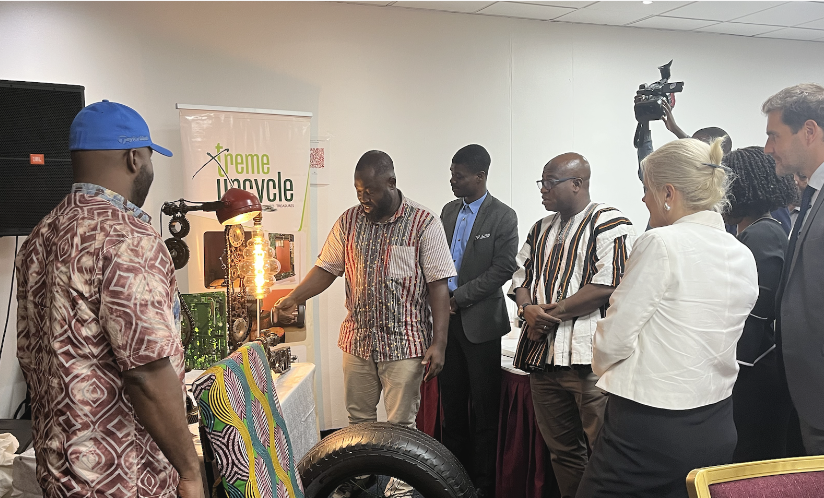Ghana has successfully implemented the Sustainable Recycling Industries (SRI) project, establishing a robust foundation for sustainable e-waste management and achieving significant technical, policy, and institutional advancements across the value chain.
At a ceremony marking the close of the decade-long initiative, Dr Ibrahim Murtala Muhammed, Minister of Environment, Science and Technology, described the project as a turning point in the nation’s efforts to tackle the growing e-waste threat.
“When the project commenced in 2013, the country faced severe challenges in managing e-waste,” he said.
“But today, thanks to collaborative efforts and the steadfast support of the Swiss Government, a framework for the environmentally sound management of e-waste in Ghana has been established,” he added.
The SRI Project was funded by the Government of Switzerland through the State Secretariat for Economic Affairs (SECO).
It was launched at a time when Agbogbloshie, then West Africa’s largest informal e-waste site, was globally notorious for unsafe and unregulated processing practices.
Dr Muhammed, who is also the Member of Parliament for Tamale Central, noted that while digitalisation has brought socio-economic benefits, it has also increased hazardous waste from discarded electronic devices.
“These wastes contain toxic substances like lead, cadmium, mercury, and brominated flame retardants, which pose serious risks to health, particularly to children, and contribute to environmental degradation if not properly handled,” he said.
Ghana responded to the crisis by ratifying the Basel Convention and enacting the Hazardous and Electronic Waste Control Act, 2016 (Act 917), along with its Legislative Instrument (L.I. 2250).
The SRI Project played a key role in operationalising these laws.
Phase II of the project included the development of technical guidelines for managing used lead-acid batteries, support for micro and small enterprises, and innovations in hazardous waste treatment such as co-processing used tyres.
It also integrated sustainable e-waste recycling into the national Technical and Vocational Education and Training (TVET) curriculum to strengthen local capacity.
Madam Simone Giger, Ambassador of Switzerland to Ghana, Togo, and Benin, said the SRI Project laid the groundwork not only for e-waste reform but also for advancing circular economy practices in Ghana.
“The achievements we’ve heard about this morning are not just milestones. They reflect the power of collaboration, innovation, and a steadfast commitment to sustainable development,” she said.
She added that e-waste remained one of the fastest-growing global waste streams and called for continuous innovation, stronger policy enforcement, and strategic partnerships.
“Ghana now has the opportunity to become a regional leader in sustainable electronics and e-waste management. In fact, we’ve heard that some countries are already using Ghana’s technical guidelines as a reference,” Madam Giger said.
In a speech read for her, Prof. Nana Ama Klutse, Acting Chief Executive Officer of the Environmental Protection Agency (EPA), stressed that e-waste was not only an environmental issue but also a major public health concern.
She said toxic accumulation in informal hubs like Agbogbloshie posed serious risks to untrained youth recyclers and nearby communities.
Prof. Klutse noted that one of the project’s lasting legacies is the inclusion of e-waste recycling in the TVET Commission’s curriculum.
This would help to equip a new generation of workers with sustainable materials recovery and green employment.
Stakeholders agreed that the SRI Project marks a significant step in Ghana’s path towards environmental sustainability, job creation, and public health protection.
DISCLAIMER: The Views, Comments, Opinions, Contributions and Statements made by Readers and Contributors on this platform do not necessarily represent the views or policy of Multimedia Group Limited.
DISCLAIMER: The Views, Comments, Opinions, Contributions and Statements made by Readers and Contributors on this platform do not necessarily represent the views or policy of Multimedia Group Limited.

